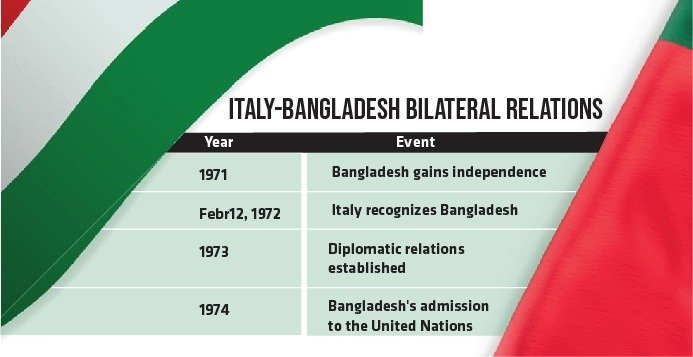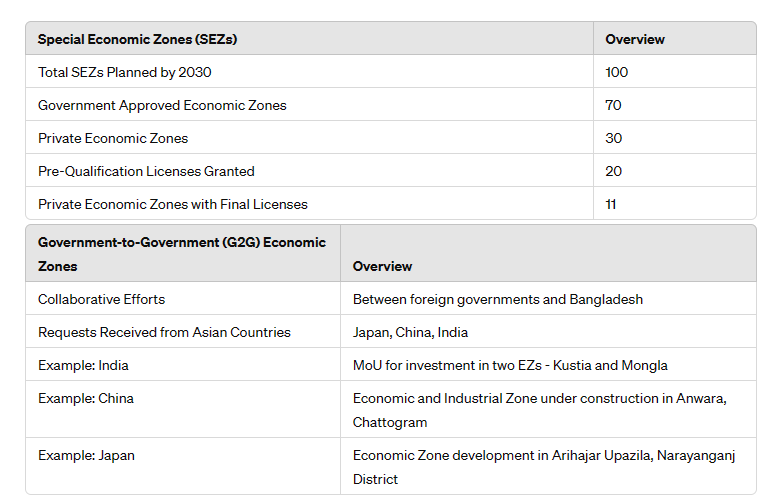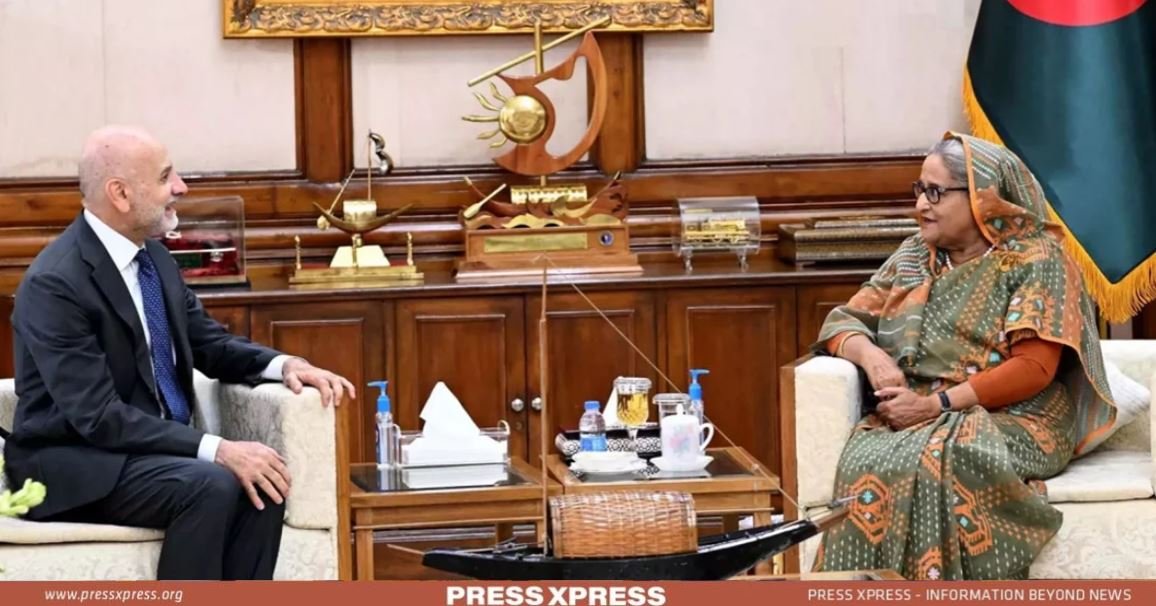Bangladesh possesses a significant domestic market and has the potential to become a central market connecting South Asian and Southeast Asian markets
Investment from overseas is vital for Bangladesh’s economic advancement. It not only helps maintain economic stability but also aids in generating employment, transferring technology, and developing infrastructure. These factors collectively support Bangladesh’s pursuit of sustainable growth and prosperity. In this regard, Prime Minister Sheikh Hasina on Sunday (12 May 2024) urged Italian businesses to make investments in Bangladesh’s special economic zones for the mutual benefit of the two countries.
The call came during a meeting with Italian Ambassador Antonio Alessandro at her official residence, Gono Bhaban.
Addressing the nation’s developmental trajectory, she mentioned Bangladesh’s anticipated graduation to a developing country status by 2026. In light of this transition, she urged Italy to support the continuation of the Generalized System of Preferences (GSP) plus facilities for Bangladeshi exports to European countries.
You can also read: Will Bangladesh Benefit from Chinese Soft Loans?
Furthermore, the Prime Minister stressed the importance of enhancing trade relations between Bangladesh and Italy, noting ample opportunities for growth in bilateral trade and commerce.
She highlighted Bangladesh’s significant domestic market, as well as its strategic position encompassing South Asian and Southeast Asian markets.

Bilateral relation with Italy
Italy and Bangladesh share a longstanding bilateral relationship that began soon after Bangladesh gained independence in 1971. Italy was among the first countries to recognize Bangladesh on February 12, 1972, and diplomatic relations were established in 1973. Italy’s support for Bangladesh’s admission to the United Nations in 1974 further solidified the relationship.
The bilateral ties between the two nations encompass various aspects, including increasing people-to-people contacts, trade, and investment, as well as alignment on key international issues. Italy has consistently shown understanding and support for Bangladesh’s positions on global platforms, particularly regarding issues like the Generalized System of Preferences (GSP) and trade facilitation.
Italy’s advocacy for Bangladesh’s GSP facility in forums like the European Union highlights its commitment to fostering economic cooperation. Additionally, Italy played a pivotal role in endorsing the establishment of an International Study Group (ISG) on jute, emphasizing international cooperation to promote Bangladesh’s jute industry.
Again, both countries stated their commitment to the dignified repatriation of forcibly displaced Myanmar nationals back to their homeland, discussing the Rohingya issue. Presently, over one million Rohingyas have sought refuge in Bangladesh following their expulsion by the Myanmar military junta.
Trade and Investment Opportunities in Bangladesh
Bangladesh presents a highly favorable environment for investment compared to other economies in South Asia. Here are the key factors contributing to Bangladesh’s investment climate:
- Bangladesh boasts a predominantly homogeneous society with minimal internal or external conflicts, and its population demonstrates remarkable resilience in the face of challenges such as natural disasters.
- The country upholds liberal democracy, fostering a long-standing tradition of harmony and mutual understanding among its diverse population, regardless of race or religion.
- There is widespread bipartisan political support for market-oriented reforms, complemented by a regulatory framework that is widely regarded as the most conducive to investors among South Asian nations.
- The labor force in Bangladesh is trainable, enthusiastic, and hardworking, offering cost-effective solutions for labor-intensive industries, even by regional standards.
- Situated in a strategic geographic location, Bangladesh enjoys convenient access to global trade routes via sea and air, enhancing its appeal for international commerce.
- Abundant natural resources, including natural gas, water, and fertile soil, further contribute to Bangladesh’s economic potential.
- Despite Bangla being the official language, English is commonly used as a second language, facilitating communication and business interactions with global partners.
- Additionally, Bangladeshi products benefit from duty-free and quota-free access to most developed countries, supported by the country’s favorable foreign direct investment policies. This access extends to major markets such as the EU, Canada, Australia, and Norway, with ongoing efforts to expand trade relations with countries like China, Russia, Malaysia, and neighboring nations.
Special Economic Zones
“Businesses and investors have the opportunity to invest in Bangladesh within our special economic zones,”
As the Prime Minister remarked on Bangladeshi’s special economic zones, it has embarked on an ambitious plan to establish 100 Special Economic Zones (SEZs) by 2030, comprising 70 Government Approved Economic Zones and 30 Private Economic Zones. The initiation of production by investors in some of these zones has led to a notable increase in Foreign Direct Investment (FDI). Currently, pre-qualification licenses have been granted to 20 private economic zones, with 11 of them already receiving final licenses.
Government-to-government (G2G) Economic Zones are being set up through collaborative efforts between the governments of foreign countries and the Government of Bangladesh. Several requests for the establishment of G2G EZs have been received from Asian countries such as Japan, China, and India. India, for instance, has signed a Memorandum of Understanding (MoU) to invest in two EZs, one in Kustia and another in Mongla.
Bangladesh’s Special Economic Zones (SEZs)

Migrants’ Perspectives
For many Bangladeshi migrants, Italy represents a glimmer of hope and the possibility of a better future. While Bangladesh’s economy has been growing steadily, the allure of better opportunities and higher wages abroad entices many to pursue their fortune in hospitality, agriculture, and other industries in Italy. However, their journey is riddled with challenges and risks.
Regarding illegal migrants in European countries, including Italy, the Prime Minister emphasized the government’s comprehensive initiatives to prevent unlawful entry into foreign countries.
“It is deeply regrettable that many individuals, including Bangladeshis, have lost their lives in the Mediterranean Sea while attempting to reach European countries,” the Premier noted.
While Italy has established legal migration channels for Bangladeshi workers, the current quota of 3,500 visas may not be sufficient to accommodate the hundreds of thousands of interested workers. To avoid the hazards of undocumented travel, more opportunities for legal migration must be created.
The Italian government’s decision to issue 69,700 ‘seasonal’ and ‘non-seasonal’ visas for 31 non-EU countries, including Bangladesh, is a positive step toward facilitating legal migration. To avoid the dangers associated with irregular migration, more opportunities must be created due to the high demand for Bangladeshi laborers.
The Prime Minister also appealed to Italy to increase the intake of Bangladeshi workers through legal channels.


